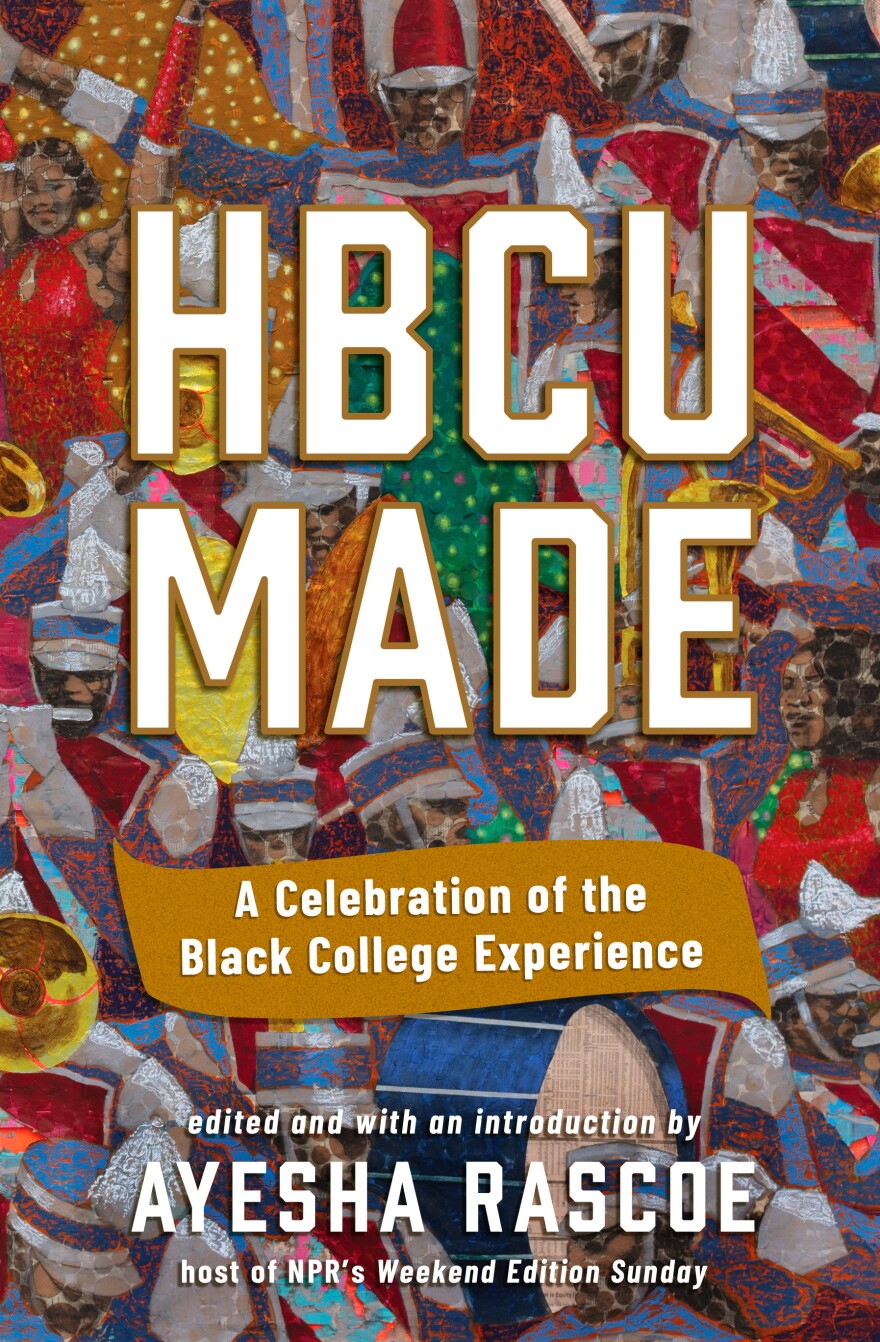HBCUs, or Historically Black Colleges and Universities, have a rich history in the United States. Many were founded during a time when Black Americans were barred from other higher education institutions. Today, HBCUs continue to provide young Black students with community, support, and mentorship while they explore career paths.
Ayesha Rascoe is the host of NPR’s Weekend Edition Sunday and the Saturday episodes of Up First. Her new book, HBCU Made: A Celebration of the Black College Experience, is a collection of essays from contributors including, Stacey Abrams, Branford Marsalis, and Oprah Winfrey, reflecting on their time at HBCUs.
Rascoe spoke on Lake Effect about putting the book together and her HBCU experience at Howard University in Washington, D.C.
The following are excerpts from that interview, some portions edited, paraphrased or consolidated for clarity.
What initially sparked the idea of bringing all these people together in your collection to reflect on their HBCU experiences?
I wish I could say that it was like completely my idea, but actually Algonquin reached out to me and they said we want to bring together a collection of essays from HBCU graduates because this hasn’t been done before with a major publishing company. I couldn't believe that this was something that hadn't been done. It seems like it should have been done a long time ago.
Going to Howard University was such a pivotal point in my life. I felt I really had to do this because I wanted to give back to an institution that gave so much to me. I do believe in the power of HBCUs, so I'm so glad to be able to bring “HBCU Made" into the world.
There's such a wide range of perspectives here in the book. In reading and editing these essays, was there any new insight that you gained about the HBCU experience?

First of all, I was shocked by how in each of the stories, you can see how the HBCU experience is really an experience about community and connection. You see it in stories like Tendayi Kuumba who is a Spelman graduate and a Broadway dancer and singer who got into a bad accident when she was at Spelman. It was her Spelman community that really rallied around her and told her she’ll be able to dance again. With Roy Wood Jr., he got in trouble when he was at FAMU, but it was FAMU that gave him a second chance.
I also learned a lot about HBCUs that I didn't know about, like Spelman and all their traditions including how they wake the freshmen up at four in the morning and have them in the chapel singing. As a Howard grad, I know about Howard, but reading about the other schools, I can see why people love these schools. I can see why people feel so connected.
You write about being at Howard and working at their student newspaper, The Hilltop. You got this piece of advice to put more bass in your voice. Could you explain what that means? How has this advice helped you since graduating from Howard?
It was Shani Hilton, who went on to be a very famous journalist. What she meant by that was I should stand in my own authority and power and embrace that and not be so timid and unsure. It was about being able to know that I am worthy and I have opinions that matter and that I'm in a spot because I deserve it.
I couldn't really take it in right at that moment, but over time, I think I've been able to hear that and receive those seeds that were planted. They've been watered, and I've been able to grow into the person that you see now and to and into a person that can stand in my power and in my authority.
When you went to Howard, did that help you become connected to other Black journalists or Black writers that came before you?
Howard has such a rich history of journalists who have come through, and so those connections helped me. I had a professor and mentor, Yanick Rice Lamb, who was the editor-in-chief of Heart & Soul. Philip Dixon was in the print journalism department at that time. He was a legendary journalist from Philadelphia who worked at the Philadelphia Inquirer and the Washington Post. I learned so much from them, and they poured so much into me.
What do you hope that people take out of reading your book, whether it's someone who's looking to go to an HBCU or someone who doesn't know that much about Black colleges in general?
What you get is the richness of the HBCU experience. Even if you've gone to an HBCU, there's things that you can learn. If you don't know much about HBCUs, you can learn about what this experience is all about. If you went to a homecoming on some campus and you pulled five or six people to the side from different generations and asked, “Why are you here? Why does this matter?” These are the types of stories you would hear. In this book you have a testimony to the worth of HBCUs and why they matter.
_


